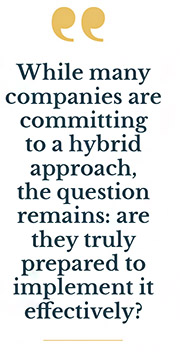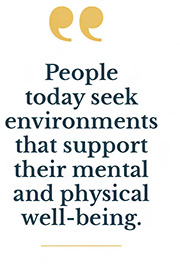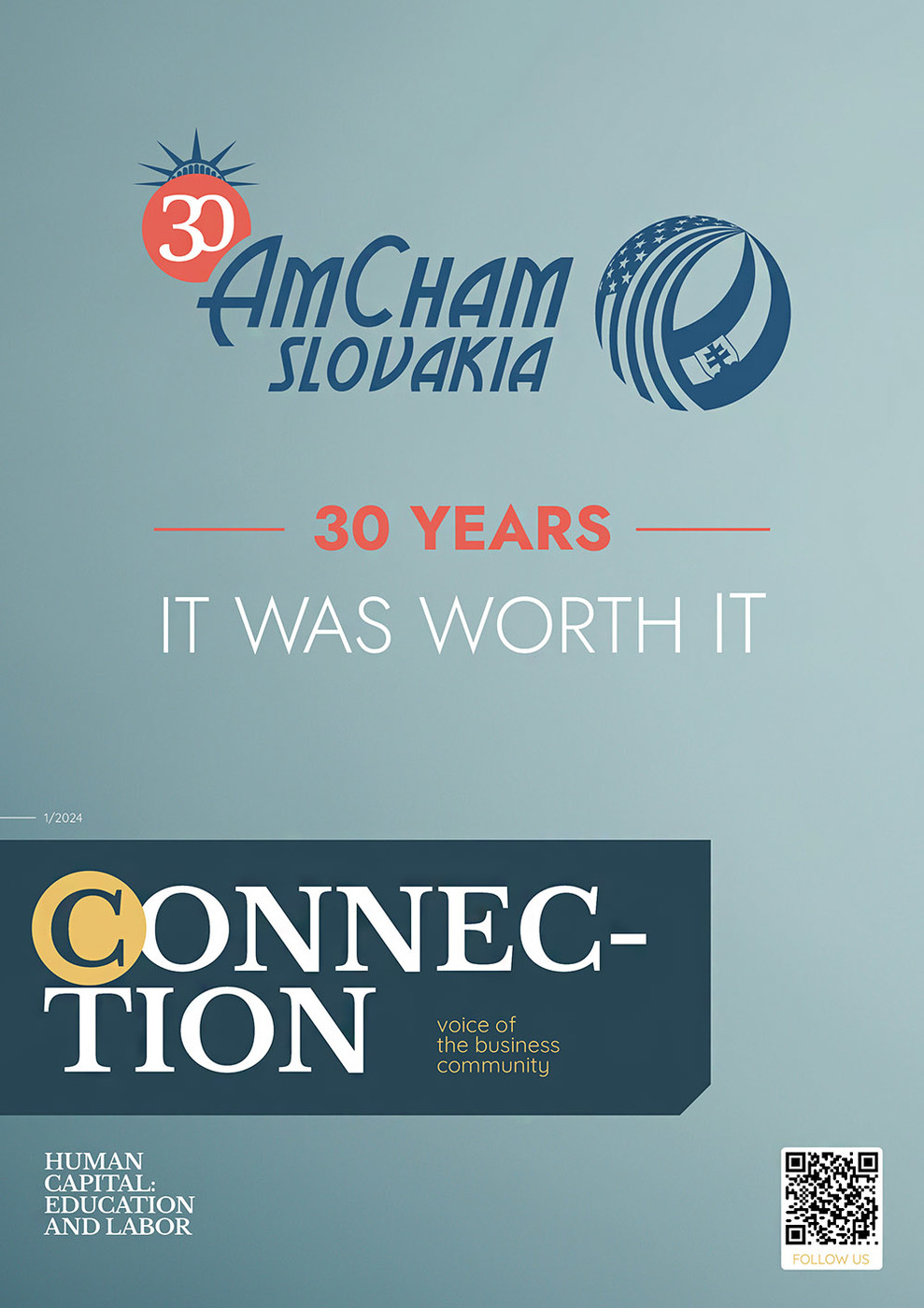The hybrid work model is a new norm
One of the most prominent changes in the work environment is the shift towards a hybrid model. This model, blending remote and onsite work, is increasingly preferred globally, especially among new talents. It has prompted a significant shift in workplace dynamics and it reflects a growing desire for flexibility and balance, reshaping the traditional office-centric approach. However, this shift presents challenges and opportunities for organizations as they strive to adapt their strategies to meet these evolving preferences.
Accenture’s Future of Work study revealed a clear preference among people for a hybrid model. However, the effectiveness of such a model hinges on its ability to foster productivity in both onsite and remote settings. This requires equipping employees with the necessary resources. While many companies are committing to a hybrid approach, the question remains: are they truly prepared to implement it effectively?
Addressing the human element in work
The future of work is not just about technological advancements or productivity tools. It’s equally about the human aspect. People today seek environments that support their mental and physical well-being. Organizations are recognizing the importance of embedding resources that cater to these needs, ensuring that employees remain engaged, healthy, and productive, irrespective of their physical work location.
 Imagine a team leader facing the challenge of balancing remote and in-office work. What if they developed a system where team members could suggest which tasks they could do more effectively from home? This approach can not only boost efficiency but also empower employees, making them feel valued and heard. It’s a practical example of how flexible, empathetic leadership can align team dynamics with business goals.
Imagine a team leader facing the challenge of balancing remote and in-office work. What if they developed a system where team members could suggest which tasks they could do more effectively from home? This approach can not only boost efficiency but also empower employees, making them feel valued and heard. It’s a practical example of how flexible, empathetic leadership can align team dynamics with business goals.
To support such an environment, where the balance between office and remote work is carefully managed, strong and insightful leadership is essential. Accenture research shows 53% of CEOs still prioritize productivity over people’s well-being. There’s a growing need for leaders to move away from traditional command-and-control models to more supportive, empathetic, and flexible leadership styles. 94 % of workers who feel they can be productive anywhere in the future of work are trusted to manage their own time, provided deadlines and expectations are met. This shift is essential in creating work environments that are not only productive but also nurturing and inclusive.
The importance of purpose and connection
In envisioning the future of work, let’s ponder a scenario. What if a company decided to place a stronger emphasis on purpose in every role? Imagine employees not just carrying out tasks, but understanding and feeling connected to the larger mission of their organization. This shift could lead to a deeper sense of belonging and commitment among the staff, enhancing both retention and productivity.
 Similarly, consider the impact of omni-connection in a workplace. What if a company, regardless of its size or geographical spread, made a concerted effort to ensure every employee felt connected and valued, whether they’re in a bustling city office or working remotely from a quiet countryside home? This sense of belonging could be a game-changer in an employee’s decision to collaborate, and innovate. Our research shows being omni-connected accounts for 59% of someone’s intention to stay with a company. It’s about creating work environments where employees feel connected and valued, regardless of their location.
Similarly, consider the impact of omni-connection in a workplace. What if a company, regardless of its size or geographical spread, made a concerted effort to ensure every employee felt connected and valued, whether they’re in a bustling city office or working remotely from a quiet countryside home? This sense of belonging could be a game-changer in an employee’s decision to collaborate, and innovate. Our research shows being omni-connected accounts for 59% of someone’s intention to stay with a company. It’s about creating work environments where employees feel connected and valued, regardless of their location.
Future will be digital
As we advance, the need for digital skills becomes more pronounced. The future of work demands a workforce that is not only technologically adept but also continuously evolving its digital capabilities. This requirement places a significant emphasis on ongoing training and development, ensuring that employees’ skills remain relevant and competitive. We found that fewer than 1 in 3 employees are confident their skills will be relevant in 5 years. Implementing a comprehensive digital strategy across an organization can enhance the perceived importance of technology and digital competencies. This approach empowers employees to tackle actual challenges and drive innovation through their technological expertise.
Balancing the tech advancements and human ingenuity
Imagine a workplace where technology seamlessly integrates with flexible policies, fostering a culture deeply rooted in trust. Envision leaders who prioritize well-being and personal growth, nurturing an environment where continuous learning is not just encouraged but celebrated. It’s about crafting a space where every individual feels connected and valued, whether they work from the office or remotely, ensuring their work resonates with a deeper sense of purpose. This journey isn’t just about adapting to change. It’s about redefining the very essence of our work lives, balancing the brilliance of technological advancements with the irreplaceable value of human touch.
***
The full version of Accenture’s Future of Work report can be found here: www.accenture.com/sk-en/insights/consulting/future-work
Tomáš Volek, Country Managing Director, Accenture Slovakia



Follow us